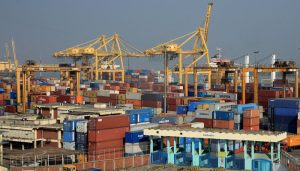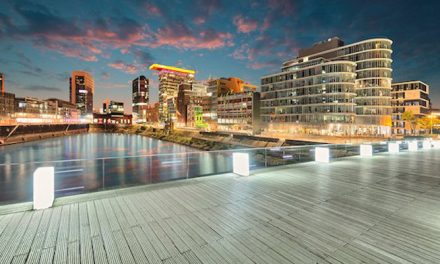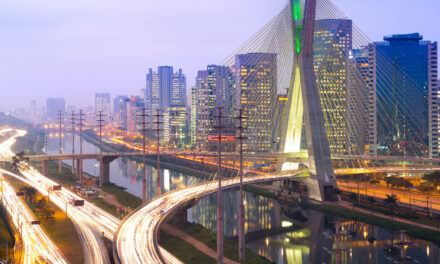
Bangladesh’s export earnings rose by 6.55 per cent to $21.32bn in the first seven months of the current fiscal year, with the apparel industry contributing to most of the earnings. However, the apparel exporters expressed dissatisfaction as earnings did not reach the expected figures and profit margins narrowed due to rise in production costs.
According to Export Promotion Bureau (EPB) data released recently, during the July-January period of FY2017-18, Bangladesh earned $21.32b, which are 6.55 per cent higher compared to $20bn in the same period in FY2016-17. During this period, the RMG sector, which comprises over 83 per cent of total exports, earned $17.65bn, 7.57 per cent up compared to $16.41bn in the same period last year. Knitwear products earned $8.9bn, a 10.5 per cent rise, and woven garment products earned $8.75bn, a 4.74 per cent rise, compared to $8.06bn and $8.35bn respectively in the corresponding period last year.
In January, export earnings rose by 3.54 per cent to $3.4bn, which was $3.29bn in January 2017. The figure is 2.55 per cent less compared to the $3.5bn target set for the month. Exporters Association of Bangladesh (EAB) President Abdus Salam Murshedy told: “Though Bangladesh export earnings are showing an uptrend, we are not satisfied with the growth as it is below expectation. In reaching the $60bn total earnings target by 2021, the government should concentrate on product diversification measures.”
Despite the export growth, the profit margin is decreasing day by day due to the rise in production costs, said Salam, who was a former President of Bangladesh Garment Manufacturers and Exporters Association (BGMEA). In this regard, the government should provide utility services including gas, electricity and water at a discounted rate for the export oriented industry; he added and demanded quick implementation of Special Economic Zones to attract more investment.
AB MirzaAzizul Islam, Former Advisor to Caretaker Government said, “With the current export growth rate of RMG sector, it is not possible to earn $50bn by 2021.” On the other hand, there are challenges ahead after the Brexit and Bangladesh’s graduation to middle income country from the LDC. Bangladesh will lose trade benefits under the Generalised System of Preferences (GSP), said Islam. In remaining competitive in the global export market, Bangladesh has to form a strategy to avail the trade facilities from developed countries, he added. Azizul Islam, also an economist, further added that investment from home and abroad should be increased to raise the production capacity of export oriented manufacturing.



















